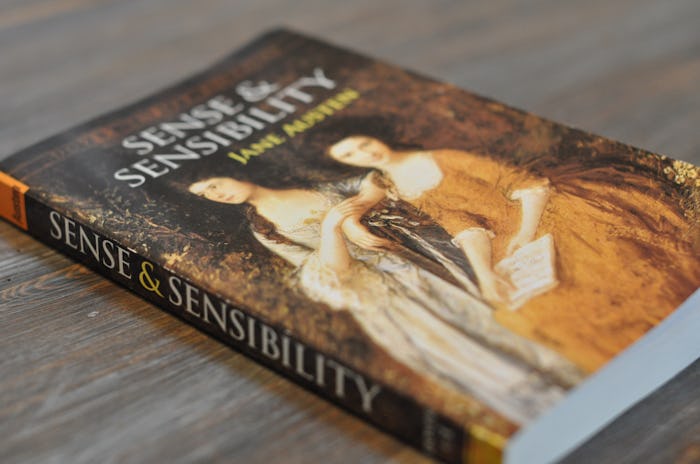Entertainment

9 Classic Books You Had No Idea Were Feminist Reads
It’s a little bit hard to imagine classic literature lifting women up, isn’t it? When I think of classic literature, I think of stories where women were so often portrayed as shallow characters, flitting around in frilly dresses and corsets, hanging around at the pleasure of the men whose company they kept, playing the side piece, the archetype of the obedient wife. (Fun game: try getting your favorite classic literature to pass the Bechdel Test.) Surprisingly enough, there are more than a few classic books you had no idea were feminist, and even more that have feminist undertones. Turns out even back before feminism was a widespread notion, authors (both male and female) were throwing down with the idea of female independence. And that’s a universal theme I can get down with.
Before you brush off classics as archaic instruments of the patriarch, take a gander at the titles listed below. Dip your toes in this little pool of classics, feel out the feminist vibes, and then expand your bookshelf to include even more feminist classics. It’s inspiring to read current stories of feminist glory, but even more inspiring to read tales from eras past, when feminism wasn’t such a widely accepted concept. Kick your feet up, grab one of these titles, and get ready to feel the empowerment.
1'Saint Joan Of Arc' by Vita Satville
Though this is a story that's been told many times, in Sackville-West's Saint Joan Of Arc, the Maid of Orleans is portrayed in every light she should be, and brings human life to an narrative so often written off as impersonal by history.
2'Madame Bovary' By Gustave Flaubert
Madame Bovary deconstructed the popular ideal of prim and proper women in the nineteenth century in one fell swoop, simply by giving Emma Bovary thoughts, feelings, and wants. Rather than focusing on the differences between the sexes, Flaubert brings to light the similarities between men and women, and suggests it's only natural that women should want more than what they've been given.
3'The Age of Innocence' By Edith Wharton
The first time I read The Age Of Innocence, I couldn't find a redeeming feminist notion from page one through the end. But after taking a course where I was forced (honestly, forced) to dive deeper and explore the text, I found that although Wharton seems to display the patriarchal norms of her society, and even defend them at some points, she sets the stage with May and Elena, and Archer Newland's reaction to them both over the course of time. Both May and Elena evolve from Newland's initial opinion, bringing to light that women may in fact be capable of more than men assume.
4'A Tree Grows In Brooklyn' By Betty Smith
The subtle feminism presented in A Tree Grows In Brooklyn must be what keeps it off of most feminist book lists. Smith's female characters are resilient and strong, while her male characters are weak and flimsy. The relationships forged by women in this book become the backbone of the story, and carry on frank discussions about sexuality, menstruation, and more.
5'The Color Purple' By Alice Walker
Powerful women set the stage for the stories told in The Color Purple. Blurring boundaries and challenging the idea of how much power women can hold with their sexuality, Walker defined a genre with this novel.
6'Sense and Sensibility' By Jane Austen
Sense and Sensibility may end with a happily ever after marriage plot, but the rest of the novel is a stage for female characters to challenge the ideals and ways that women of the period dreamt and thought about love. The importance of female friendship is solidified in this novel, as well as their strength.
7'Their Eyes Were Watching God' By Zora Neale Hurston
Janie's story in Their Eyes Were Watching God is seemingly defined by her relationships with men, but at second glance, you find that she holds strong to her belief that a partnership should be equal between a man and a woman, and that she harnesses her own power to keep herself moving forward.
8'A Room Of One's Own' By Virginia Woolf
In A Room Of One's Own, Virginia Woolf imagines that Shakespeare had a sister, a sister of equal talent, and weaves her tale. Exploring the history of women in literature, and making note of the things required to be a famed writer — leisure time, independence, financial security, privacy — tying them to what it meant to be a woman in history, and how rare it was to be able to break free from the male dominated hierarchy of the time.
9'The Awakening' By Kate Chopin
Chopin's frank portrayal of a female life in The Awakening startled audiences, criticizing the ideals of marriage and motherhood. Telling the story of Edna Pontellier, and her rejection of the societal norm as she pursues freedom.